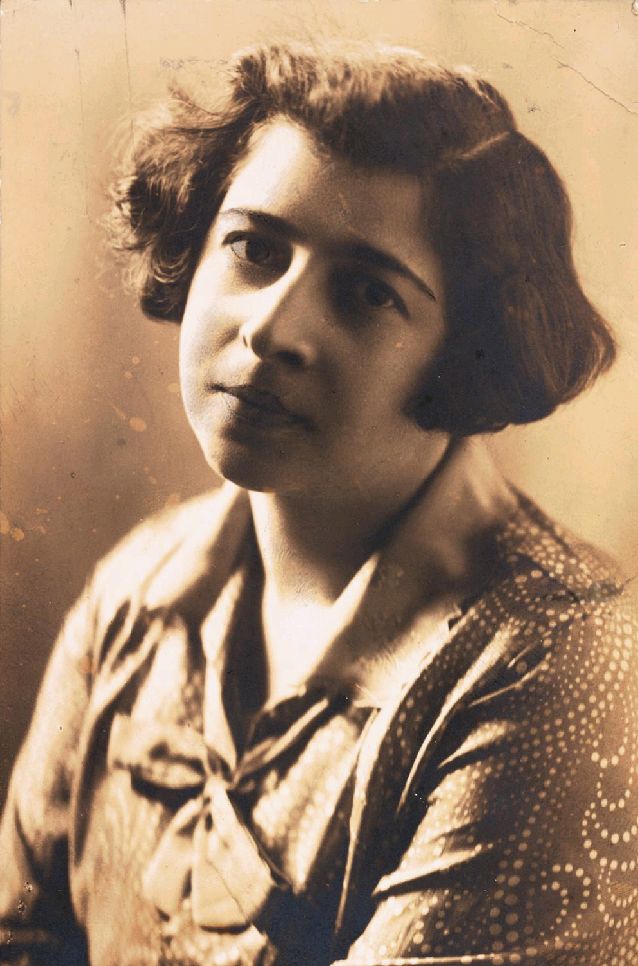Rachel Korn - Biography
Early Years
Rachel Herring was born on January 15th, 1898 in the village of Podliszki, in the former Galicia,
then a part of the Austro-Hungarian Empire. Born into a privileged family, Rachel was raised on an estate run by
her beautiful and inspiring mother. At the time, Jews under the Hapsburgs were able to own land under Franz Josef,
unlike their counterparts in Northern Poland. Well versed in both Ukrainian and Polish, Rachel grew up with her
mother and two brothers, having lost her father at the age of twelve.

She graduated Matura (similar to College) upon returning to Poland and was already
an established writer in her twenties when she married Hersh Korn in Przemyśl.
Her earliest poems use the epic genre leaving out rhyme in favour of narrative.
Although epic poetry followed in the tradition of nationalism, and was not usually
considered a Jewish genre her background, being different from that of other
Jewish writers, allowed her a special understanding of one’s relation
to the world outside of the shtetls (small Jewish villages), and to the soil
itself. Growing up as a part of the only Jewish family in the village allowed
her to interact daily with non-Jewish people, enabling her to keep an open mind,
a facet which proved priceless in her poetry.
Rachel first published her writing in Polish and due to the toughness of her
language, the critics were convinced that she was a man. At her first interview
in Lvov people were more than surprised to find a beautiful woman behind the
intelligent, brutally honest poetry. If not for her pride, she would have continued
to write in Polish, as it was her first language. She was in her twenties when
her husband introduced her to Yiddish as a language, and, falling in love with
it, she decided to continue her writings in Yiddish, as Polish had come to represent
the language used by anti-Semitic compatriots. She was steeped in the culture
that she lived in, and wrote in Yiddish even though her stories contained nothing
Jewish about them. During her early years as a Yiddish writer, esteemed writers such as Itzik Manger,
Melech Ravitch and Baruch Sheffner all came to be considered close friends.
Following the publication of her first Yiddish book came a lot of commotion,
welcomed for its novelty and creativity. One writer pointedly stated: “She
is short-sighted, but how far she sees.”Growing up with a secular education,
and Pro-Left ideals, Korn focused her earlier work on the village and her connection
to the earth, themes and imagery that were not as common in Yiddish Literature
at the time. In later poems she would create her own interpretation of biblical
characters (Please see Biblical Poems).
She was surrounded by villagers who were working for her mother and was one of the first Yiddish writers to introduce into the literature the non-Jewish voice (which became increasingly standard only around 1910-11). Most Yiddish writers at the time lived among the Jews, but as Korn did not, her advantage was that she knew the natural world in a way other Jewish writers didn’t. As a poet she brought into the spotlight characters that were otherwise part of the background. In her later poetry she worried about who would write for these people when she was gone. She was very liberal in her writing and her husband adored her, never asking her to tone down the beliefs conveyed in her poetry. As a pro-leftist before the war, she was supposed to go to Lvov to march in a protest when she was arrested. She was held in prison for two days, in order to prevent her from marching with the workers in the city. At that time, even newspapers in Argentina contained headlines conveying that Rachel Korn was imprisoned. On the 1st of May, as the flowers began to come out, Korn’s mother refused to leave the house until her daughter was released from prison, not allowing the sunlight to seep in behind the draped curtains. Korn was very independent minded and courageous to have taken a stance as a revolutionary. Her emotions always proved much stronger than anything else, and served as the driving force behind her poetry. When she was disappointed with Communism she was able, as she was very well known, to air her opinions to her fellow writers in Moscow. She saw that Communism didn’t work for the Jews. She was pro-left until 1939 when it was forbidden. When she was finally able to believe in it openly, she no longer did.
She was much befriended with writers. She was the first writer invited from the outside to Moscow. Her early years were essential to her development as a writer. She had two younger brothers, with whom she was very close. They were both killed along with her mother during the German invasion of Poland. She would find out the fate of her beloved mother and brothers later on through a former neighbor.
The issues that Korn dealt with in her poetry before the war were essentially human. She never wanted to write specifically for women, but the issue of human rights ran deeply for her. As women were mostly among those at the bottom of the human rights scale, many of her poems may be read as feminist. Her scope was more than that, however, it was humanist. A new consciousness of women Yiddish writers was emerging.
The War
In 1939 Poland was invaded by Germany. Despite Poland insisting that they wouldn’t give the military men so much as one button to Germany, it became clear within days, that Poland was not going to win. At this point Rachel, her husband and their daughter Irene (Renia), took their belongings and drove east through Romania, hoping to be out of Poland. Driving east they stopped at a small city. They arrived in Zbaraz and met the writer Baruch Sheffner there, who had decided to go north to Trans-Siberia and from there to Japan and then to New York. There were other writers who wanted the Korn family to go with them but thinking it illogical at the time, Hersh decided against it. Now without a car (the Polish army had seized it), the family rented a room with a Jewish family in Eastern Poland and it was during this stay that the Russians came. As this was to be the first meeting with the Russian army, nobody knew that they had divided Poland, and Korn decided to return to Przemyśl by train. From June 1939 until 1941, the Korn family stayed among the Russians, as Poland was then part of the Ukraine. At this point, Rachel was contacted by Yiddish writers from Kiev in Russia, who invited her to be the first outside guest writer to come and visit. Korn went deep into Russia, to visit the Jewish Soviet writers and spent time with such respected names in Yiddish Literature as Der Nister, Itzik Fefer, Mikhoels, David Bergelson and Peretz Markish. They were extremely nice to her and she returned completely disillusioned with Communism and became violently opposed to it.
At this time her daughter, Irene, was studying medicine in Lvov. Korn decided to go to Lvov as she had already bought an empty apartment, because the family was planning on moving there from Przemyśl. Irene remembers how her mother ominously told her that when she came to Lvov she said that she had experienced the feeling that she would never see the garden of the house in Przemyśl again. This was in June when everything was in bloom. Her husband had told her that the idea was unrealistic but suggested that she not to go to Lvov if she was feeling that way. She went anyways, saying that the ticket was already bought. Unknowingly her predictions would prove correct as this was to be the last time Korn would ever see her house and her beloved husband. The Germans occupied Przemyśl within hours.
In Lvov, Irene was living in a student house along with the daughter of the Jewish family that the Korn family had previously lived with in the Ukraine. On a Saturday afternoon, Korn invited the two girls to lunch with her at the Writer’s Union. At this time, the very first bomb fell on Lvov and the three women were buried under rubble, across from the park.
In Lvov, Rachel and her daughter were both in suits, Irene without a passport and purse while Korn had a document proving that she belonged to the Jewish Writers Union, accompanied by a photograph. In the park, Irene’s boyfriend found the women under a tree and took them to his parents’ house to sleep, as the Germans were expected to enter Lvov that night. In the early morning, Korn was in the bathroom looking through the window when she saw a Russian truck driver evacuating Russian women, mostly wives of officers. With a towel over her shoulder she ran downstairs stating that she was a Jewish writer and that she would be killed if the Germans found her. Showing her documents she asked the driver if he would take her, Irene and Irene’s friend. He agreed but told them that he would not take any luggage. Positive that the truck would drive them to Russia, Irene’s boyfriend ran after and threw whatever money he had into the back of the truck.
The main station in Lvov was already bombed, forcing the driver to go elsewhere. The other station was in an open field and he deposited the women, telling them that this would be the train that would take them to Russia. Starting to cry, Irene told her mother that she didn’t want to go and leave her father and the rest of the family. Rachel then ran to the man and asked him to stop, saying that she wanted to go back. The driver said that he would not take the two of them but he took Irene’s friend. Rachel and Irene remained in the open field near the train, and boarded the freight train when it arrived. In grey suits, Rachel Korn and her daughter made their way to Russia.
Part II
It is known that Korn encompassed two personalities. One was that of a naïve child, and the other was wise beyond her years, demonstrating a sixth sense. She would always repeat that she gave birth to her daughter twice, once conventionally, and the second time when they narrowly escaped death by not returning to Lvov.
The two women arrived in Kiev in 1941, but because at that time the German army was moving so quickly, and had taken over the city, most of the Jewish writers went East. Rachel and her daughter went to Ufa, located between the Urals, which inspired poems about hostile earth. Once in Ufa, Irene started to work in the hospital as a nurse. In the early Fall in September, they felt that the winter was coming and at the time met with Polish writers and decided to go south to Slobodnik, where they thought that they may be able to cross the border. Traveling through the Kara-Kum desert, they were on the train for three or four weeks, before arriving in Tashkent. From Tashkent they went to Fergana in Uzbekistan. At this point, Korn developed pellagra from hunger, and had to be admitted to the hospital. Although she was offered, in 1942, to come and write in Kujbyshev (where the temporary Writers Union was) for Di Freiheit, the communist newspaper, she refused. She had a sixth sense and would not allow her belly, swollen from hunger, to stand in the way of her beliefs. At this time, Irene met her husband, Edmund, and she went back to Moscow with the University, while Korn stayed in Fergana until there was a writers meeting in Moscow. There Korn met the esteemed Yiddish writer Abraham Sutzkever, in 1943. During this period in Russia, a great importance was placed upon writers. During the years 1943-1944 Korn was very well off, living in a hotel and receiving a lot of money from the government. Although her fellow Jews were very supportive of Communism, Korn was already thinking of ways to leave Russia. Most of her beloved Soviet writers would later fall victims to the Stalinist purges of 1952 when they were robbed of their lives after devoting their lives to the Communist cause.

Korn returned to Poland in 1945 at the end of the war, arriving in Lodz and eventually Warsaw. In 1946, she was the first Jewish writer to be invited to be a member of the first PEN club in Stockholm, Sweden. She was sent from Poland to Stockholm and had an interview with the king’s son, who was also a writer, and who had achieved the position of secretary at the Writers Union. After the interview he asked Korn how many visas she needed and through her, other writers were able to get to Stockholm. She lived there until 1948 when she moved to Montreal, Canada, sponsored by the Yiddish writer Ida Maze. She lived out the rest of her life in Montreal, visiting Israel, writing several volumes of poetry, and watching it become translated. Her success and fame as a writer became subdued as the Holocaust claimed most of the Yiddish speakers and readers.
Rachel Korn died in 1982, after a life-time of success, loss, and a brilliant career. She was the recipient of the distinguished Itzik Manger Prize for Yiddish Literature among many others.
Award /Prizes
-
- Bimko Prize
- Louis Lamed Prize (1950, 1958)
- Certificate of Honour, Jewish Book Council of America (1969)
- Jewish Book Council Award: Yiddish Poetry (1969)
- Leivick Prize (1972)
- B’nei Mordechai Prize (1980)
- Zhitlovski Prize (1981)
- Itzik Manger Prize
This website is devoted to introducing English speakers around the world to her beautiful poetry and wisdom, so that it may be rediscovered and enjoyed not only for its artistic merit but for its love of humanity and of life.


